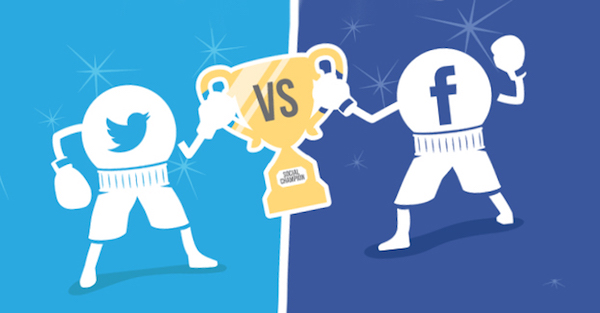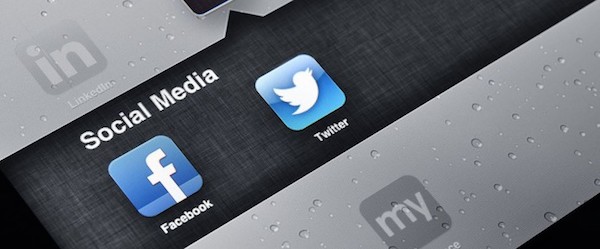Twitter Or Facebook: Which Is Better For Business?

As social media platforms, Twitter and Facebook differ in the way in which they present information to their users. Whilst there is a degree of crossover, in that a number of users utilise both of the platforms simultaneously, the two platforms fulfil two very different marketing needs.
Facebook provides a superior ability to build deeper relationships and conversation, whilst Twitter excels in the creation of viral trends. Due to this, it is not really a matter of one or the other, for the best effects, both platforms should be utilised in conjunction as part of a business’s social media marketing efforts.
Often the popularity of Twitter is questioned as Facebook provides a far more functional platform where users can perform multiple actions. However in many ways this is why Twitter is so popular. It provides users with a straight forward platform which is purely social and driven by interactions. Twitter’s popularity has also been attributed to the fact that it enables users to set up numerous accounts in order to fulfil a variety of functions.
As a platform, Twitter addresses the limited attention span of many web users, which is increasingly becoming troublesome for companies and businesses when they shape their online marketing campaigns. According to TechCrunch.com, the average attention span of an internet user is five seconds. If a page, article or other form of internet content does not appeal to them during this time the overwhelming majority of users simply press close. From a business perspective this means that a potential customer or sale has been lost. Twitter provides a direct answer to this issue with their fast paced, 140 character form of interaction otherwise known as the tweet. Initially this may seem to be too limited in order to convey information, however if used correctly it is more than adequate. What it does mean however, is that it forces users to think about what they really want to say and how best to word their point.

From a marketing perspective, Facebook and Twitter need to be treated very differently. Companies and businesses should treat Twitter as a virtual elevator pitch. An elevator pitch is a short and concise summary of a product, service or establishment and the value which it provides for its consumers. The term is used to describe scenarios whereby a marketer meets a prospect in an elevator and has until the prospect exits to attempt to sell them something. Therefore when using Twitter, brands and businesses need to be not only concise they also have to provide value.
On the other hand Facebook, provides companies and businesses with a social media platform which facilitates deeper levels of interaction, which when utilised correctly can foster far more intimate relationships. However, it is harder for a Business Page to gain likes on Facebook than it is to gain followers on Twitter. Due to this, marketers have to work harder in order to engage with their audience. As Facebook has no limitation on the size of posts this enables marketers to display far greater amounts of information to users at a glance.
Ultimately the two platforms cannot truly be compared as they are two very different social beasts. The best and most successful marketing approach is to harness the social power of both of the platforms simultaneously as part of an integrated marketing strategy. Enabling companies, businesses and brands to reach a variety of potential clients and customers.
